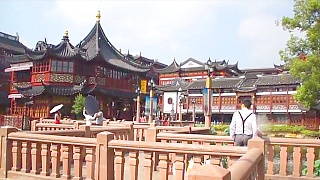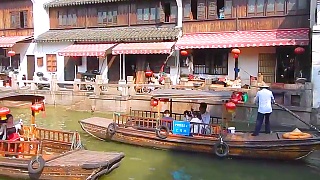 ZhengZhou 郑州, HeNan province
ZhengZhou 郑州, HeNan province
One of the 'Eight Great Ancient Capitals' of China.
Great music in this beautiful film ...
[640],shadow=true,start=,stop=
HeNan map

Related Videos
Featured Videos

|
YuYuan Garden, NanJing Road, the Bund and PuDong.
|

|
Arriving in YunNan province. So delightful ...
At home for the Spring Festival ...
|

|
|

|
The Western media's portrayal sounds like a pre-prepared script; part of the long-standing policy of world hegemony through 'color revolutions' destabilisations such as recently in Ukraine (and dozens more). At least, it has persisted in its propaganda for decades. The 'struggle for democracy' really means subservience to Western domination. Who is the one rewriting history?
Despite the thousands of protesters, other residents and hundreds of foreign journalists, there is no photographic evidence; the 'proof' lies only in tales.
For many weeks the government listened to the protesters but it had become overtaken by 'leaders' determined to force confrontation. About 300 (rioters and military) died a few kilometers west of the square as rioters attacked the military's approach to the square. At the square, an agreement was reached for the protestors to leave by dawn, and that's what happened, without bloodshed.
The MSM like to show us the 'tank man'. There is video too. This person climbs onto the tank, talks with the military, then again returns to being in front of the tank, which tries to go around him. Two bystanders then persuade him to leave. What we do not see - anyone getting shot or run over.
Some have grudgingly accepted that the violence took place some distance away from square, but state that the location is not important. But it is important given that for decades the tale was of a 'massacre of students in the square'; it shows the deception.
Who is the one rewriting history?
The following links have a good overview :
https://www.liberationnews.org/tiananmen-the-massacre-that-wasnt/
https://www.japantimes.co.jp/opinion/2014/06/03/commentary/world-commentary/really-happened-tiananmen/
More :
https://www.rt.com/op-ed/163872-china-tiananmen-square-june4/
https://www.cbsnews.com/news/there-was-no-tiananmen-square-massacre/
|

|
With The New Atlas ...
Bonus film ...
Bonus film 2 ...
Bonus film 3 ...
Bonus film 4 ...
Bonus film 5 ...
Bonus film 6 ...
|

|
A Columbian in China discusses freedom, socialism, poverty and more. A 'feet firmly on the ground' view ...
* Socialism Chinese style - hand-up, not hand out ...
* Freedom from fear ...
* Meritocracy ..
* Poverty ...
|

|
YangHu Wetland Park ...
Downtown ...
MeiXi Lake mall ...
MeiXi Lake Park ...
Cycle tour ...
Peach Blossom Valley ...
Night walk ...
City drive ...
Underground shopping mall ...
Metro system ...
HuNan University ...
Night walk 2 ...
City drive 2 ...
|

|
A first step in getting out of a trapped life, to a real life, is to become free of toxic people.
Nobody is perfect; but most people know, to some extent, their faults, feel empathy and try to be better. But some people cannot see their faults, lack empathy and are always 'right' - the most important thing to know is that they cannot be 'fixed', understood, or healed by you (only a highly skilled psychotherapist stands a chance, and that's partly because there is no life relationship).
If you cannot (yet) get away, at least become aware that it is not your problem.
One can sense some similarities in dynamics with geo-politics.
A variety of voices on this topic - in no particular order (may need multiple viewings because it can take time to understand more than superficially) ...
|
Tag search ?

 ZhengZhou 郑州, HeNan province
ZhengZhou 郑州, HeNan province




